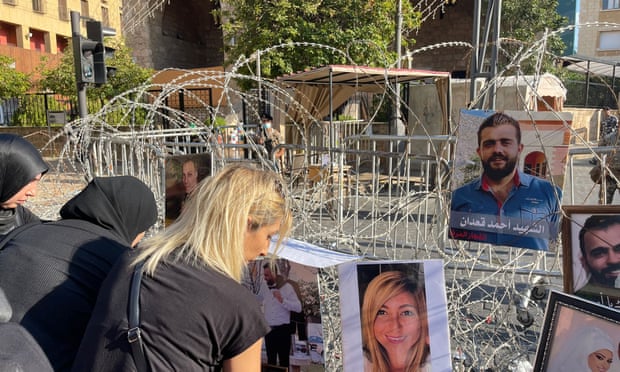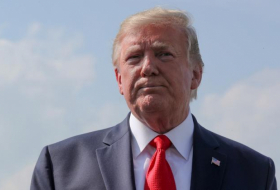As the first anniversary of the deadly Beirut explosion approaches, the European Union said on Monday it hopes to develop the legal framework for sanctions targeting Lebanese leaders.
More than 11 months since Lebanon’s government resigned in response to the blast on 4 August 2020, the country is still headed by a caretaker government.
Led by France, the EU is now seeking to ramp up pressure on Lebanon’s squabbling politicians after months of a crisis that has left the tiny country facing financial collapse, hyperinflation, electricity blackouts, and fuel and food shortages. The EU hopes to have developed the framework for a sanctions regime by the end of July.
Justification for EU sanctions such as travel bans and assets freezes for specific politicians are likely to include corruption, obstructing efforts to form a government, financial misdeeds and human rights abuses, according to a diplomatic note seen by Reuters.
The move is part of broader international efforts to force a stable government capable of carrying out crucial reforms to emerge from nearly a year of political chaos and economic collapse following the blast that ravaged Beirut port.
The EU cautioned that the measure would not be immediately implemented.
EU foreign policy chief Josep Borrell told reporters in Brussels: “I can say that the objective is to complete this by the end of the month. I am not talking about the implementation of the regime, just the building of the regime according to sound legal basis.”
The blast was caused by hundreds of tonnes of improperly stored ammonium nitrate fertiliser which exploded on the dockside at Beirut port, killing more than 200 people, injuring thousands and destroying swathes of the capital.
Afterwards, it emerged that officials had known about the explosive substance being stored there unsafely for years.
“Lebanon has been in self-destruct mode for several months,” French foreign minister Jean-Yves Le Drian said. “Now there is a major emergency situation for a population that is in distress.”
Le Drian said there was now a consensus between the bloc’s 27 nations for a sanctions regime.
In Lebanon, the judge investigating the blast on Monday rejected a request by MPs for more evidence before immunity for three ex-ministers can be waived, a judicial source told Agence France-Presse.
Earlier in July, lead judge Tareq Bitar said he had demanded that parliament remove the immunity of ex-finance minister Ali Hasan Khalil, former public works minister Ghazi Zaiter and ex-interior minister Nohad Machnouk. Bitar said he was looking at possible charges of “probable intent to murder” and “negligence”.
Monday’s move may mean a new standoff, with fears that the inquiry could be derailed by political interference.
In February, Bitar’s predecessor as lead judge in the investigation was removed by a court, which questioned his impartiality because his home was damaged in the explosion.
The judge had in December issued charges against caretaker prime minister Hassan Diab and three former ministers for “negligence and causing death to hundreds”, triggering outrage from politicians.
Rights activists condemned the court ruling as another example of the Lebanon’s entrenched political class placing itself above the law. Diab stepped down after the blast, but has stayed on as caretaker leader.
Relatives of victims of the blast protested outside the homes of two of the ministers on Monday, demanding that they lose their immunity, the official ANI news agency reported.
Last month, rights groups including Amnesty International and Human Rights Watch called for a UN investigation into the explosion in light of the stalled investigation.
More about: #BeirutBlast















































